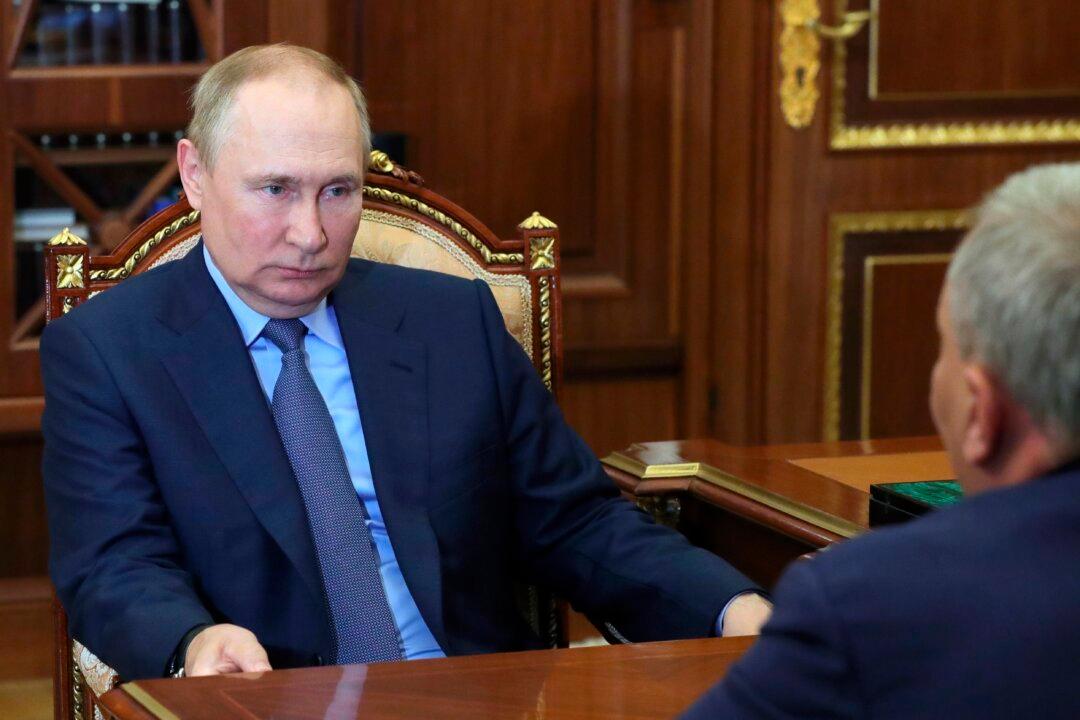Russian President Vladimir Putin on Tuesday signed a measure to formally suspend the last remaining nuclear arms pact with the United States amid high tensions over the war in Ukraine.
Russia will no longer take part in the New START treaty, according to the bill he signed that was published by the Kremlin. The document says that it’s up to the president to decide whether Moscow could return to the pact.





